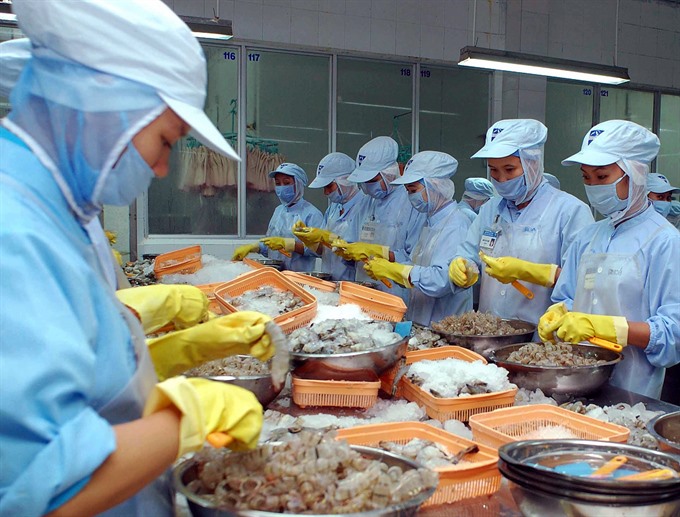Although Canada is a major producer of seafood, it still imports a variety of sea products from Viet Nam, especially black tiger shrimps.

Although Canada is a major producer of seafood, it still imports a variety of sea products from Viet Nam, especially black tiger shrimps.
According to Viet Nam’s General Department of Customs, last year, Viet Nam’s seafood export turnover to Canada reached more than US$183 million. This was the highest figure for agricultural products exported to the Canadian market.
In the first 10 months of this year, seafood exports to Canada have leapt significantly. Turnover so far is more than $186 million.
Nguyen Nhu Tiep, director of the National Agro-Forestry Fisheries Quality Assurance Department (NAFIQAD), said Canada had one of the strictest import regulations for farm products, especially seafood.
However, as it is a high value market, learning to comply with the system gives Viet Nam an advantage when selling to other countries.
In terms of seafood, Tiep said Vietnamese shrimp products had the biggest sales opportunity in Canada because demand was quite large.
The standard of many shrimp raising and processing enterprises in Viet Nam now meets the requirements of Canada. However, the same is not true for farming in general.
In particular, Canada has shifted to management from the bottom up. Therefore, not only processing enterprises must be inspected, but also raw material areas must be assessed by Canadian authorities visiting Viet Nam to approve export licences.
To promote Viet Nam shrimp exports, Canada recently backed a $15 million technical assistance project to help businesses and farmers control food safety.
Nguyen Duc Hoa, Vietnamese Ambassador to Canada, said Canada is a country with favorable natural conditions for agriculture and the world’s leading agricultural technology. Therefore, there is optimism that Vietnamese businesses will soon be allowed to directly invest in Canada’s agricultural production.
At present, a number of Vietnamese enterprises are visiting Canada to lease agricultural land. In addition, Canadian firms are interested in Viet Nam’s agriculture, including its adaptation to climate change.
The biggest problem with the Canadian market is that information and two-way understanding between Vietnamese and Canadian companies is still limited, according to Hoa.
Hoa suggested the Ministry of Agriculture and Rural Development should organise trips for delegations from Viet Nam to meet Canadian enterprises to seek specific co-operation opportunities. — VNS





